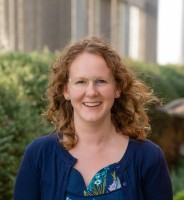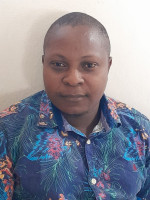Sustainable Living & City
Societal Challenges
Economics & Global Development
Urban Planning
Resilient Infrastructure & Safety
Social Justice & Equity
Political Economy & Governance
AXA Awards
United Kingdom
2018.01.11
Risks and contradictions of urban sustainability in Africa
It was Dr. Cardoso’s PhD studies on “petro-urbanisation” between Angola and Brazil that prepared for this more extensive project, which includes recent linkages to China. From the 2000s, China took over the role Brazil had played since the 1980s: “When China emerged as a global power,” says Dr Jia-Ching Chen who will do field work there, “it secured oil and energy in far-off places but also embarked on creating an international market for its newly-found technical and engineering expertise.” While there are many studies that look at how former colonial European powers shaped African cities, this project focuses on novel South-South connections.
Looking at trends driven from 'above' but also from 'below'
However, while the building of a city through the exchange of oil is certainly a global story, it is also a story that must be deeply situated: “While we examine the political economy of infrastructure planning and construction from ‘above,’ our analysis is also driven by closely grounded attention to the way infrastructures are negotiated through everyday politics from ‘below’,” says Dr. Wangui Kimari, another postdoc in the project.
To deliver cutting-edge outputs, the team will develop a “theory lab” (with Dr. António Tomás) with an international workshop that focuses on how African cities continues to be “targets” for imperialist projects and expansions and how colonial and post-colonial legacies shape the built environment. Dr Ernstson will also develop a “street lab” with Luandan artists building on his previous work across art and research. This will facilitate workshops with residents to surface everyday understandings and contradictions with two planned outputs; a paper zine and a film. The long-term aim is to use the AXA Research Award as a foundation towards a 10-year research programme at The University of Manchester into comparative urban environmentalism with a focus on the Global South.

Henrik
ERNSTSON
Institution
The University of Manchester
Country
United Kingdom
Nationality
Swedish
Related articles
Sustainable Living & City
Climate Change
Climate Adaptation & Resilience
Urban Planning
Resilient Infrastructure & Safety
Environmental Justice
Post-Doctoral Fellowship
Australia
2023.06.20
Indicators for Climate Resilient City Planning
Expected start date:June-2023 Cities contribute enormously to global greenhouse emissions and are key drivers of climate change. By the same... Read more

Melanie
LOWE

